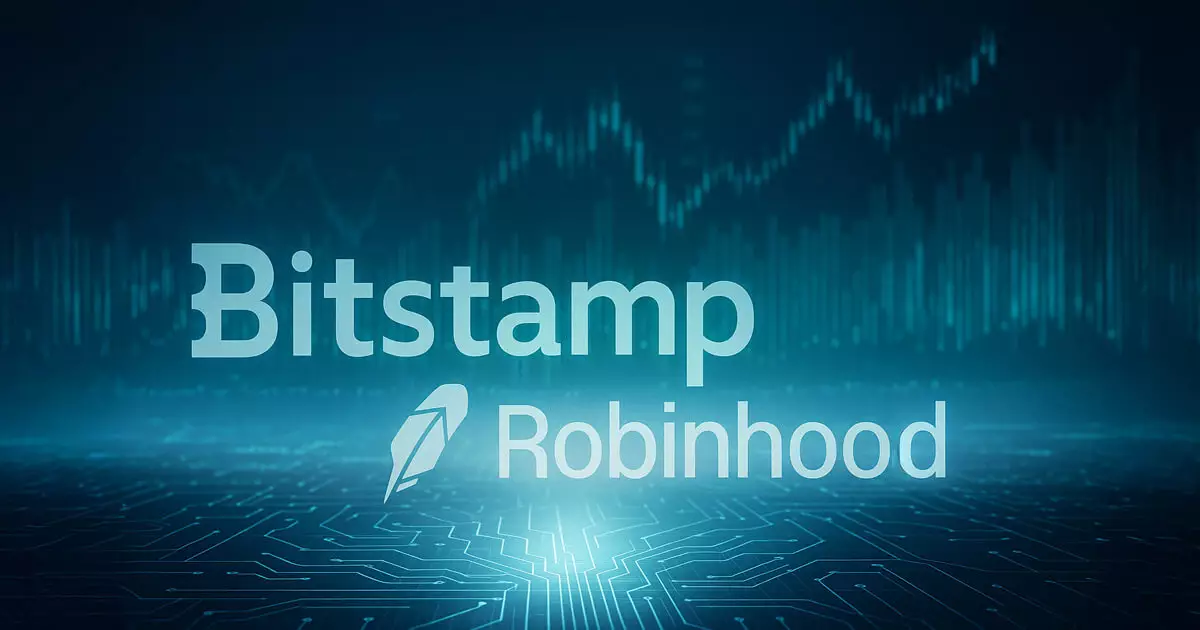In a bold and telling move, Robinhood has completed its $200 million acquisition of Bitstamp, a historic player in the world of cryptocurrency exchanges. The strategic decision reflects not only a thirst for expansion but an underlying confidence in the potential of the crypto market. By acquiring Bitstamp, Robinhood instantly garners over 50 active licenses spanning major markets in Europe, Asia, and the United States. This is more than just an entry into international waters; it signifies a marketplace evolution. The Californian fintech, historically recognized as a local player, now holds the keys to a global enterprise, one that is legitimized by regulatory approvals that would have otherwise required years of grueling compliance processes.
Uniting Forces: A Vision for Growth
Vlad Tenev, CEO of Robinhood, has openly embraced this acquisition as a strategic maneuver to broaden the company’s horizons. With the merger, Robinhood intends to tap into Bitstamp’s credibility within both retail and institutional crypto sectors. It isn’t merely about adding services; it’s about enriching the brand with a reputation for reliability and trust. As Tenev remarked, Bitstamp’s accolades equip Robinhood with a powerful foothold in an industry where reputation can dictate success or failure. This alliance transforms Robinhood from a mere disruptor in U.S. markets into a formidable contender on the world stage, poised to challenge its competitors like Coinbase and Kraken.
Catering to the Institutional Sector
Perhaps the most notable aspect of this acquisition is Robinhood’s foray into institutional trading, which has been notoriously elusive for the fintech. With Bitstamp’s existing infrastructure for white-label custody and operational frameworks establed around high-frequency traders and family offices, Robinhood can now target a more sophisticated clientele. This strategic shift is crucial in an environment where the retail trading boom is slowly losing momentum, and revenue streams are under pressure. As Robinhood diversifies its offerings beyond a predominantly retail-focused landscape, the acquisition opens doors for generating stickier revenues—vital for long-term sustainability.
Regulatory Certainty: A Key Advantage
In a climate fraught with regulatory uncertainty, Robinhood’s completion of this acquisition could not come at a more opportune time. Following the closure of a probe by the U.S. Securities and Exchange Commission, the path to merging with Bitstamp has been cleared. This newfound regulatory certainty provides Robinhood with a distinct advantage—while competitors grapple with legal challenges, Robinhood is positioning itself as a compliant operation that’s ready to offer services across various jurisdictions. As legacy crypto players like Binance find themselves entangled in legal battles, this merger allows Robinhood to sidestep years of bureaucratic hurdles and gain immediate access to a well-established permissioned framework across the European Union, thanks to the Markets-in-Crypto-Assets (MiCA) regime.
Expanding the Product Offering
The acquisition also broadens Robinhood’s product arsenal, now enabling the trading of over 85 cryptocurrencies and introducing features such as staking and lending. This is in stark contrast to the mere 15 tokens currently available to U.S. traders on the platform. The promise of a diverse portfolio will likely appeal to both existing and new customers, catering to a broader array of investment strategies. While Robinhood has hinted at a selective rollout of these expanded offerings in the US pending further regulatory clarity, undeniable excitement surrounds the potential for growth.
Racing Against Competitors
As Robinhood races towards integration, the stakes are high. Integrating Bitstamp’s operations seamlessly while maintaining the loyalty of dedicated users will be a challenge. But the opportunity for Robinhood to offer a cohesive, transatlantic service in a rapidly evolving crypto landscape could ultimately set them apart from competitors who have opted for slower growth strategies, such as Kraken and Coinbase’s licensing pursuits across Europe.
The acquisition stands as a testament to Robinhood’s ambition and ability to evolve rapidly in a dynamic market. As it transitions into this new phase, the onus will be on Robinhood to leverage its expanded capabilities effectively, bridging the gap between traditional retail trading and the burgeoning realm of institutional investment in crypto.

